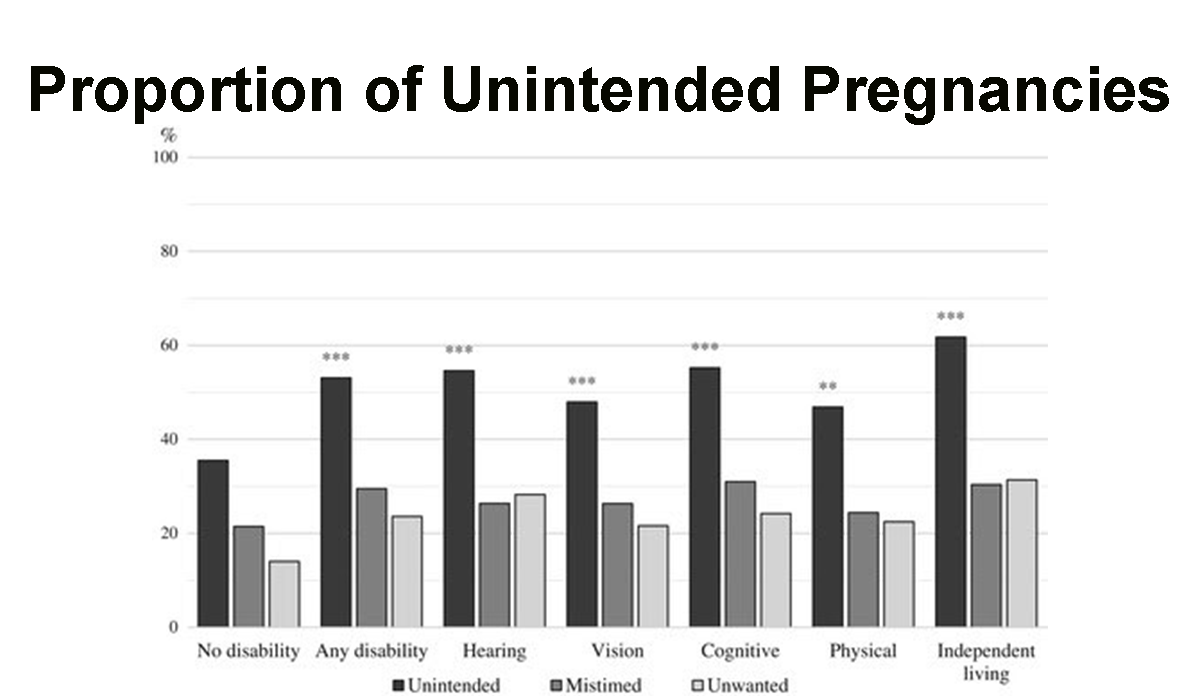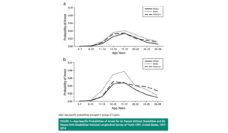“I was told, ‘Why would you want to bring a child into this world…’; I had to go in depth with my disability, and find out if it’s possible for me to give ‘birth to a normal child’.” ~ Focus Group Participant, Kalpakjian et al., 2020.
Women with disabilities face significant challenges when it comes to reproductive health. They have a harder time obtaining contraception, and have higher rates of unwanted sexual experiences and intimate partner violence. Societal norms and attitudes from medical professionals discourage individuals with physical or mental disabilities from having children. This attitude is remnant of decades of discrimination and forced sterilization campaigns.
A study by Horner-Johnson et al. looked for relationships between disability status and pregnancy intent. They used five disability categories as defined by Heath and Human Services: hearing, vision, cognitive, physical, and independent living. Data was gathered from 3,089 women through the National Survey of Family Growth.
Women of all disability types had higher rates of unintended pregnancies than those without disabilities. As shown above, approximately half of all pregnancies are unintended.
The authors suggest a number of explanations. First, adequate sex education services are not created for or readily accessible to people with disabilities. Second, racism leads to women of color having higher rates of unintended pregnancies, compounding these effects when combined with disability status. Third, women with disabilities face challenges within our social ecosystem; disability is amplified by lower levels of education, low income and lack of immediate social support.
Women with disabilities need to be given the choice to decide to raise a child for themselves, rather than have that decision made for them. Solutions include access to sex education, proper OBYGN care, contraception, and effective communication from health professionals.
Databyte via Horner-Johnson W, Dissanayake M, Wu JP, Caughey AB, Darney BG. Pregnancy Intendedness by Maternal Disability Status and Type in the United States. Perspect Sex Repro H, 52:31-38.














